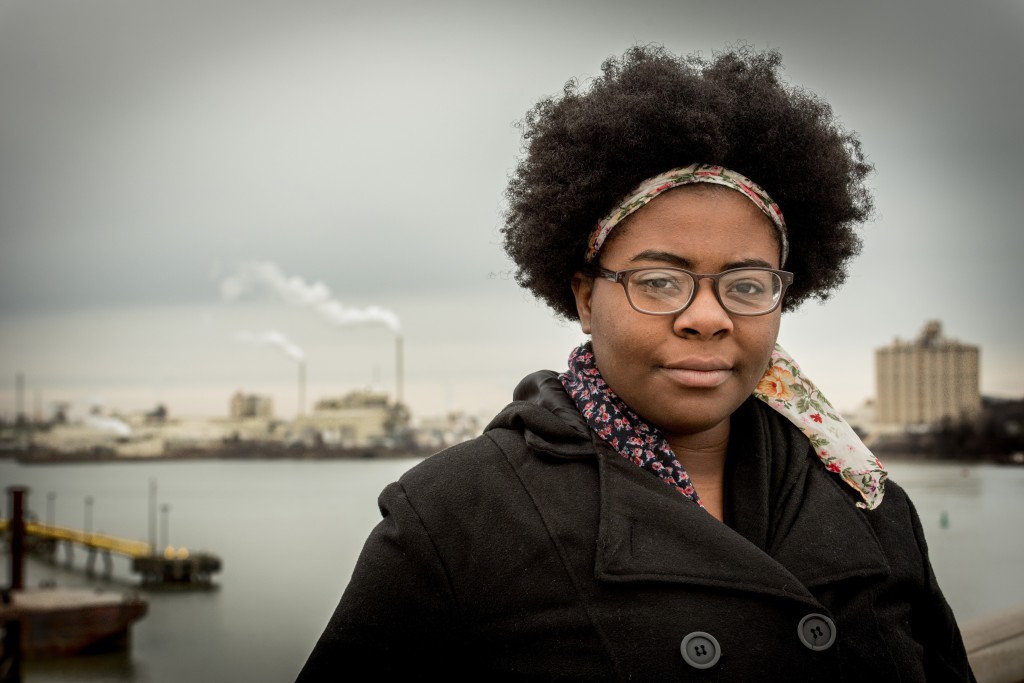Destiny Watford Fights Air Pollution, Wins Goldman Environmental Prize
It’s easy to get discouraged by the obstacles looming on the environmental landscape. However, the annual Goldman Environmental Prize recipients remind us of the power of the individual to make a difference. (Tragically, the 2015 winner from Honduras, Berta Cáceres, was assassinated in March).
This year, the North American taking home the award was Destiny Watford. At 20-years-old, she is third youngest person to receive the Goldman honor.
Watford, at 17, rallied her student peers and community to push back against — and ultimately stymie — the plans of the Energy Answers International company. They were coordinating to build the largest incinerator in the country in Watford’s home neighborhood of Curtis Bay, South Baltimore.
The residents of Curtis Bay have been subjected to a density of toxic sitings for decades. A report released in 2012 by the Environmental Integrity Project documented that from the years 2005 – 2009, the “Curtis Bay zip code was among the top ten zip codes in the country for the highest quantity of toxic air pollutants released by stationary (non-mobile) facilities.” The area is riddled with industrial plants including those that have processed sewage treatment, medical waste, and fertilizers. Coal piers and billowing smokestacks look down ominously on the local playground and neat row houses. Asthma rates are excessively elevated, and incidences of lung cancer and respiratory disease are high.
A performance of Ibsen’s play, An Enemy of the People, which deals with the theme of truth-telling in the public square, sparked Watford. She connected the dots between the health needs of her community and the agenda of those behind the incinerator project.
United Workers, a human rights group established in Baltimore in 2002 to focus on the concerns of low-wage workers, became the umbrella organization for Free Your Voice — a student group co-founded by Watford. Together, they are fighting for social and environmental justice, equity, and accountability.
Going from house to house, engaging people through direct outreach, Watford and her activist colleagues sought to discuss the incinerator situation and its potential impact. Many older dwellers, who had watched one industry after another add to the local pollution, felt resigned to the situation.
Clear on the problem at hand, Watford stated clearly, “Our system is failing us.” Armed with the facts about the negatives the incinerator would bring to Curtis Bay — including yearly emissions of 240 pounds of mercury and 4,000 pounds of lead released into the air, Watford spearheaded marches, arranged for presentations in front of the Baltimore County Public School board (including a rap performance), city government agencies, and local businesses that had agreed to buy electrical energy from Energy Answers International. The objective was to have entities cancel their contracts and divest from the undertaking.
“We want positive alternatives in our community,” emphasized Watson. The prospect of young children being impaired by cognitive development due to toxins, and others suffering from a range of cardiovascular diseases, was a motivating impetus.
The Maryland Department of the Environment has since pulled the permit that Energy Answers International had secured. It turned out that they were out of compliance with the state rule that demanded construction on a project had to begin during the eighteen months before the air quality permit expired.
Watford is now a student at Towson University. She pronounced to the audience during her acceptance speech, “It isn’t the fate of our community — or our planet — to be a dumping ground.”
Calling for a mobilization of the grassroots with the impassioned declaration, “We have to take the lead,” Watford told the crowd to thunderous applause, “This is a matter of survival. All life is sacred.”
Photo: Courtesy of The Goldman Environmental Prize
This article originally appeared on the website Moms Clean Air Force




